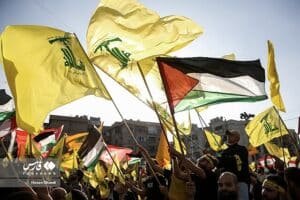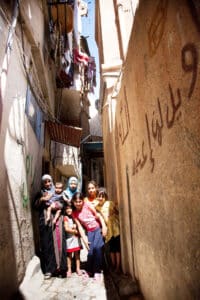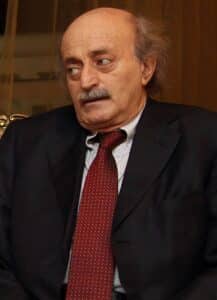Lebanon enters the 7th week of anti-government protests, as Prime Minister Hariri says he will not be the next Prime Minister following his resignation amid the protests in the country. Meanwhile the government is struggling to deal with angry motorist blocking the roads, following the closure of petrol stations and uncertainty over the ability of the country to repay its debt. Still the Lebanese political elite look to be busy with retaining power instead of solving the current political deadlock. Many fear that the country will fall in a deep economic crisis as the confidence of foreign investors is declining rapidly.
Recently owners of petrol station went on strike demanding that they would be allowed to increase the prices, as the local currency drops they are losing money due the limitation on the fuel price. The country’s banking sector has imposed strict capital control as it is struggling with a shortage of dollars and a growing national debt. The shortage of liquidity has caused business to collapse and thousands of employees have been fired or had their salaries cut. In several cities across the country, motorists parked their cars in the middle of roads, saying they had run out of petrol. In other areas angry protesters blocked roads to express their anger against the closure of the petrol stations. Meanwhile, the banking crisis has also hit war torn and neighbouring Syria, its economy is heavily reliant on Lebanese banks, as the civil war has limited the possibility to transfer dollars through Syrian banks, causing business owner and ordinary citizens to use the Lebanese banks instead.
Sectarian division causes clashes
The protests began peaceful but after a while pro-government supporters clashed with the rioters who demanded that the government should resign. Lebanon’s society has always been divided in different sectarian groups, which is translated into the political system. With the constitution prescribing that the President should be Christian, the Prime Minister a Sunni Muslim and the speaker of the parliament a Shia Muslim. The country has been ruled like this since 1943, with the signing of the national accord.
But during the protests the division of political power has come under criticism, with former PM Hariri insisting a new government should contain technocrats. While Hezbollah and the Amal movement, also called the March 8 coalition, want to keep the current system of politicians from specific sectarian groups. The group opposing the March 8 coalition is the March 14 alliance, including the Future Movment- led by PM Hariri, Lebanese Force party- a Christian nationalist party- and the Progressive Socialist party, led by Walid Joumblatt. Meanwhile clashes between the two groups continue, as supporters of both groups clashed for three consecutive days after protests on Sunday 24 November turned violent. Riot police has tried to keep the two sides apart, but Amal and Hezbollah supporters managed to infiltrate the anti-government protesters. These days of prolonged clashes have seen the anti-government supporters turn to violence themselves. Like Abdel Khaled, a protesters ; “It was raining rocks on us. It was a battle, really like a battle. But we are not scared. We want it peacefully, but we are not scared of anyone. We want to build a better Lebanon.” As the stalemate continues friction between the opposed groups in the countries is increasing, signalling the need for the political elite to agree on a new government.
US releases aid package as political future remains uncertain
On Monday 2 December, US President Donald Trump’s administration has lifted a mysterious “hold” on a security aid package worth around $100 million aid for Lebanon. This comes after the foreign military assistance was withheld by the White House budget office on 31 October without any explanation. Members of Congress along with U.S. diplomats urged the Trump administration to lift the “ban” stating that the package was crucial to support Lebanon while it struggling with the unstable economic and political situation. Undersecretary of State for Political Affairs , David Hale, said there had been some disagreements about the efficacy of U.S. aid to the Lebanese armed forces, as one of the reason to freeze the package. Still the country is led by a caretaker government and with the disagreements on the formation of a new government lingering on, no real solution looks in sight. As the economic crisis worsens, President Aoun along with the minister of economy, the central bank’s chief and the head of the banking association had a meeting on Friday 29 November, to put forward suggestion to solve the crisis. As a result the central bank governor would take measures to coordinate effort with banks to preserve a stable system said a statement released by the chairman of the Association of Banks in Lebanon. The UN special coordinator for Lebanon, Jan Kubis, discussed the proposed measures with the central bank governor.
As the economy and political crisis continues and anger is growing in opposed sectarian groups, intervention of international organizations or countries seems more likely due to the dire state of the Arab country. According to a Hezbollah minister international pressure has already caused political actors to push for a solution. “A solution started looming after the international message reached the various political parties,” caretaker State Minister for Parliament Affairs Mahmoud Qmati said, noting that “several international parties” are pushing for a solution in Lebanon.
Sources: Aljazeera Middleeastmonitor Reuters Insideover Naharnet



